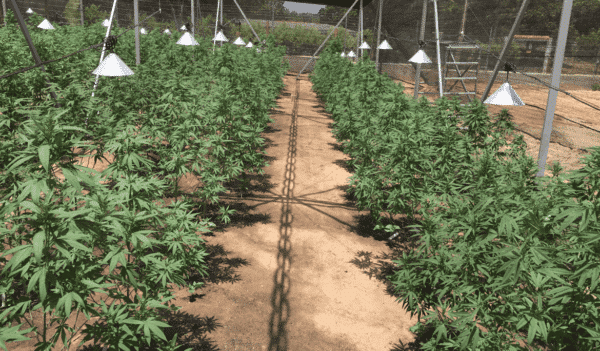
 A new report from investment banker Raymond James singles out a handful of companies that it says are taking the right steps to profit from the current interest in CBD or cannabidiol, the cannabis compound now legal both in Canada and the United States which is finding its way into a range of consumer products.
A new report from investment banker Raymond James singles out a handful of companies that it says are taking the right steps to profit from the current interest in CBD or cannabidiol, the cannabis compound now legal both in Canada and the United States which is finding its way into a range of consumer products.
Cannabis companies may be in a funk but the public interest in all things CBD couldn’t be higher. The non-intoxicating cousin to the psychedelic THC compound in marijuana is being touted for its supposed benefits for a range of issues from epilepsy, pain management and insomnia to anxiety and depression, acne and heart disease. And while some clinical studies have been conducted on CBD’s potential benefits, clinical investigation is still in its early stages.
That lack of scientific rigour may not stopping your local coffee house from putting CBD-infused drinks on its menu or your pet store from hawking CBD therapies for depressed dogs but it will definitely hamper the fortunes of cannabis companies looking to make it big on CBD.
So says Raymond James in an industry brief which claims that the real commercial opportunity for CBD “is in producing pure GMP-quality molecules consistently and investigating their effects rigorously.”
Raymond James analyst Rahul Sarugaser writes that after attending the US FDA’s public hearing on products containing cannabinoids earlier this year and learning about how the agency plans to approach the regulation of CBD, he believes that the FDA’s new framework will “centre on quality manufacturing and clear evidence of safety.”
“We expect that the FDA’s new framework would require the bar to be raised on CBD-based products’ manufacturing quality, and that health claims around CBD-based products would only be allowed among products that have been evaluated through clinical trials. The agency has issued several warning letters to cannabis companies that had been advertising CBD products using unsupported health claims, including one of the U.S. largest multi-state operators, CuraLeaf, which resulted in its products being removed from the shelves of CVS pharmacies nationwide,” he writes.
As a result, Raymond James posits two keys to unlocking the long-term opportunity of CBD, viz., the establishment of Good Manufacturing Practice (GMP) accredited operations, and the execution of well-designed and controlled (‘gold-standard’) clinical trials. And on those fronts, Raymond James points to five companies that it thinks are currently following these paths.
• Toronto-headquartered medical cannabis company Avicanna (Avicanna Stock Quote, Chart News TSX:AVCN), which Sarugaser says has a pipeline of cannabinoid-based pharmaceutical formulations in preparation for Health Canada-registered trials
• Botanix Pharmaceuticals (Botanix Pharmaceuticals Stock Quote, Chart, News ASX:BOT) out of Perth Australia, which currently has several active FDA-registered clinical trials with its research focused on dermatological conditions
• Cardiol Therapeutics (Cardiol Therapeutics Stock Quote, Chart, News TSX:CRDL), which is developing CBD therapies for heart disease
• GW Pharmaceuticals (GW Pharmaceuticals Stock Quote, Chart, News NASDAQ:GWPH), which has a 20-year tenure in cannabis clinical science and, aside from its two drugs currently approved for marketing in multiple indications (Sativex and Epidiolex) has developed a GMP-certified manufacturing protocol cultivation, extraction, separation, and formulation of cannabinoid-containing drugs, Sarugaser notes
• Massachusetts-based Kalytera Therapeutics (Kalytera Therapeutics Stock Quote, Chart, News CSE:KLY) which is in FDA-registered clinical trials on CBD for the prevention of graft-versus-host disease in the context of blood cancer therapy.
“As cannabis shifts from its current status as a quasi-cottage industry and toward being subsumed by (or aligning with) a set of mature global sectors such as CPG and Pharma, our thesis posits that empowering technologies will be key drivers of success,” Sarugaser says.
“Companies that embrace engineering principles — particularly industrial and manufacturing engineering principles — invest in intellectual property, and leverage foundational scientific data, we believe, will be long-term winners in the greater cannabis space,” he adds.
Leave a Reply
You must be logged in to post a comment.






 Share
Share Tweet
Tweet Share
Share




Comment